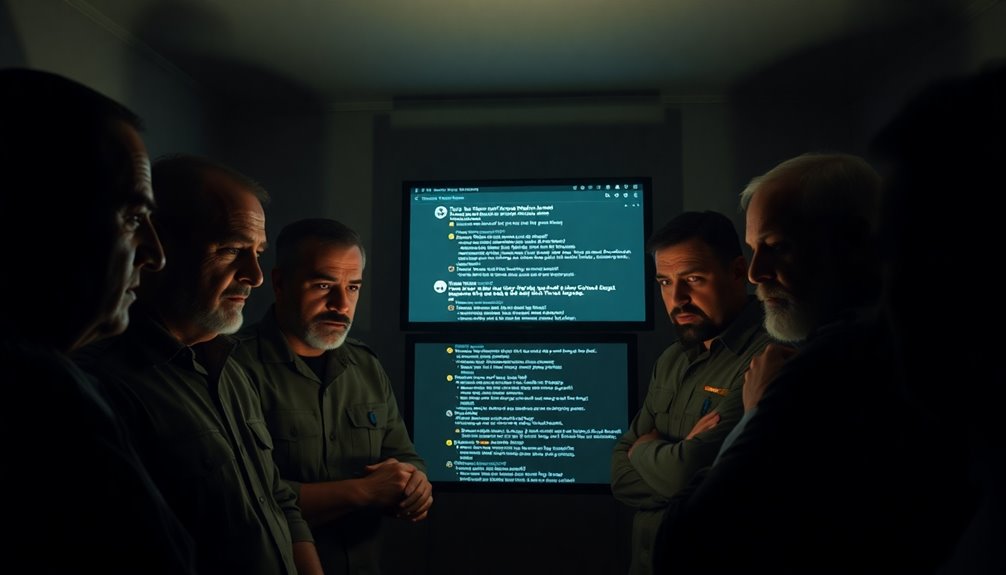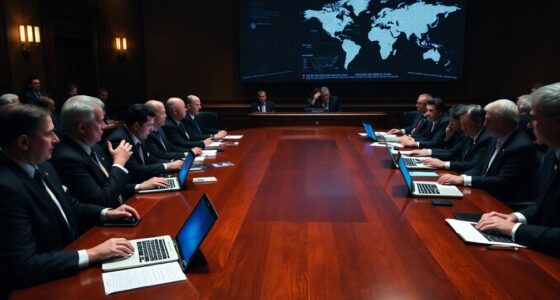
In a major security blunder, a journalist was accidentally included in a private Signal chat among top U.S. officials discussing classified military operations against the Houthis in Yemen. This chat featured high-ranking officials, including the Vice President, Defense Secretary, and National Security Adviser, and it took place just days before President Trump authorized airstrikes on March 15, 2025. During the discussion, sensitive information about target locations, weapon packages, and the sequence of attacks was shared, raising serious concerns about operational security.
The chat included top Trump administration officials who were debating critical aspects of the military plan, which further emphasizes the gravity of the situation. The National Security Council has confirmed the authenticity of the chat and launched an internal investigation to determine how the journalist got added. Brian Hughes, the NSC spokesperson, acknowledged the leak and the serious implications it carries. Political reactions have been swift, with Democratic lawmakers condemning the incident as a significant breach of military intelligence. President Trump claimed he was unaware of the incident, but the fallout may affect more than just public perception.
While no immediate consequences have been reported for the senior officials involved, the situation highlights a double standard. Lower-ranking officials typically face severe repercussions for similar breaches, including loss of security clearances. The leaked information could have severe legal ramifications under the Espionage Act, which governs the handling of national defense information.
Pentagon regulations explicitly forbid using messaging apps like Signal for classified discussions, yet here we are, facing the repercussions of this oversight. The internal probe will likely scrutinize how a ‘principles committee’ was set up on Signal for high-level coordination. The group chat included key figures such as the Secretary of State and the CIA Director, who exchanged operational details that culminated in airstrikes conducted just hours after the discussions.
These strikes resulted in significant casualties, with at least 53 reported by Houthi sources. Critics argue that this reckless handling of sensitive information not only endangers the lives of troops but also undermines national security protocols. The potential risks posed by such leaks can’t be overstated, even if, thankfully, none were realized this time.
Standard procedures for handling classified information seem to have been disregarded, raising questions about the security measures in place. As this investigation unfolds, the implications for national security and the accountability of those involved will be closely watched.

Private Chat – Secure & Private Messaging
- Google Sign-In: Fast, secure login without passwords
- End-to-End Encryption: Secure message privacy
- No Server Storage: Messages not stored long-term
As an affiliate, we earn on qualifying purchases.
As an affiliate, we earn on qualifying purchases.

Gemaxvoled Cell Phone Jail Lock Box, Mobile Phones Prison Lockable Cage for Classroom Family Time Party
- Encourages Face-to-Face Interaction: Promotes direct communication during family time
- Helps Manage Phone Addiction: Locks away phones to reduce screen time
- Spacious and Portable Design: Measures 5.9×5.12×7.48 inches, holds six phones
As an affiliate, we earn on qualifying purchases.
As an affiliate, we earn on qualifying purchases.

SonicWall Comprehensive Anti-Spam Service for NSA2600-1 Year License (01-SSC-4471) – Inbound Email Filtering with Spam, Phishing & Malware Protection for SonicWall Security Appliances
- High-quality anti-spam service: Inbound email filtering with malware protection
As an affiliate, we earn on qualifying purchases.
As an affiliate, we earn on qualifying purchases.

Joyreal AAC Device for Autism, Non Verbal Communication Tools for Speech Therapy & Stroke Rehab. Communication Tablet, Autism Talking Aids with 8 Programmable Buttons & Adjustable Volume
- Number of Talking Buttons: 37 pre-installed instruction buttons
- Voice Switch Options: Male and female voice toggle
- Programmable Buttons: 8 customizable recording buttons
As an affiliate, we earn on qualifying purchases.
As an affiliate, we earn on qualifying purchases.









